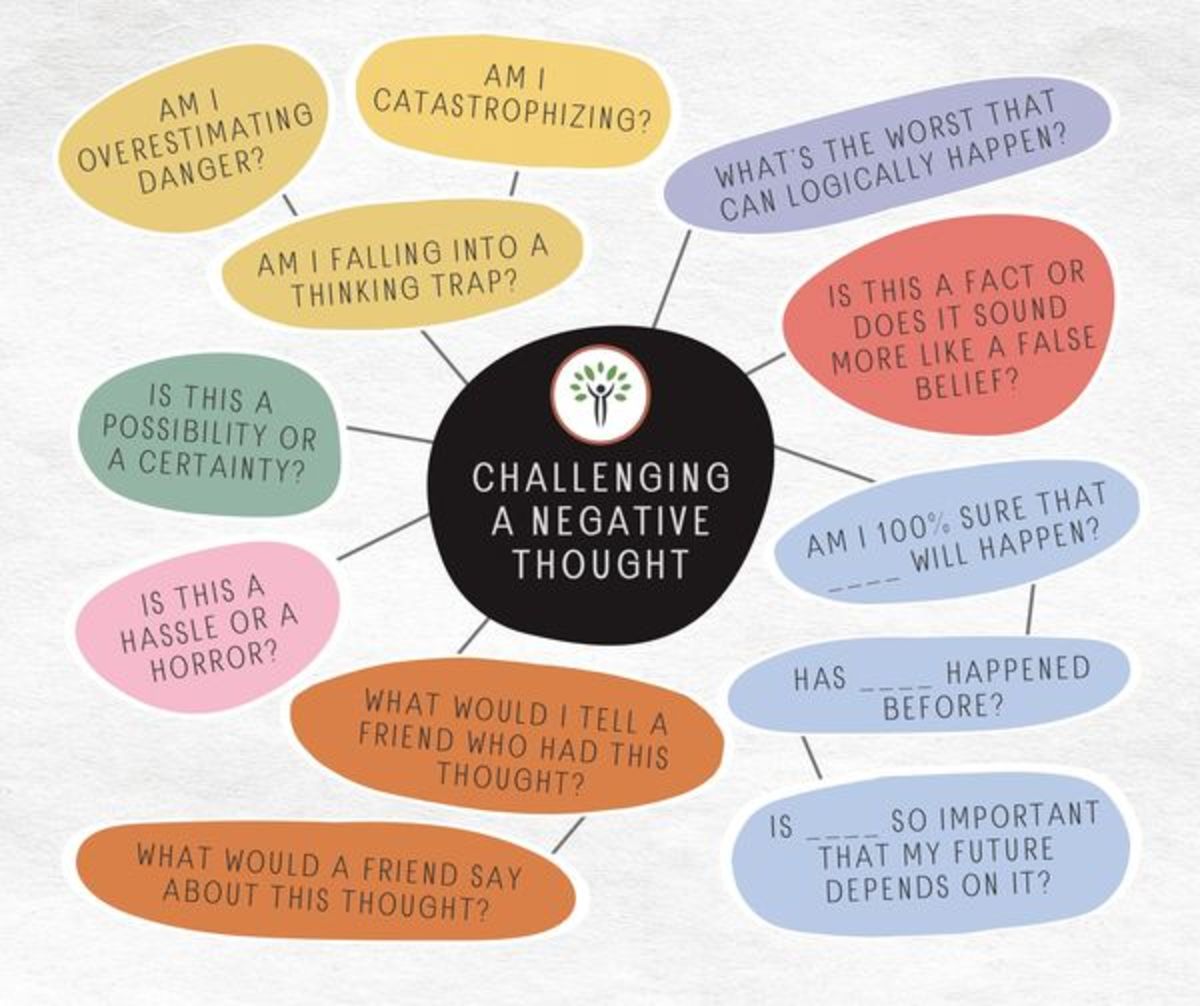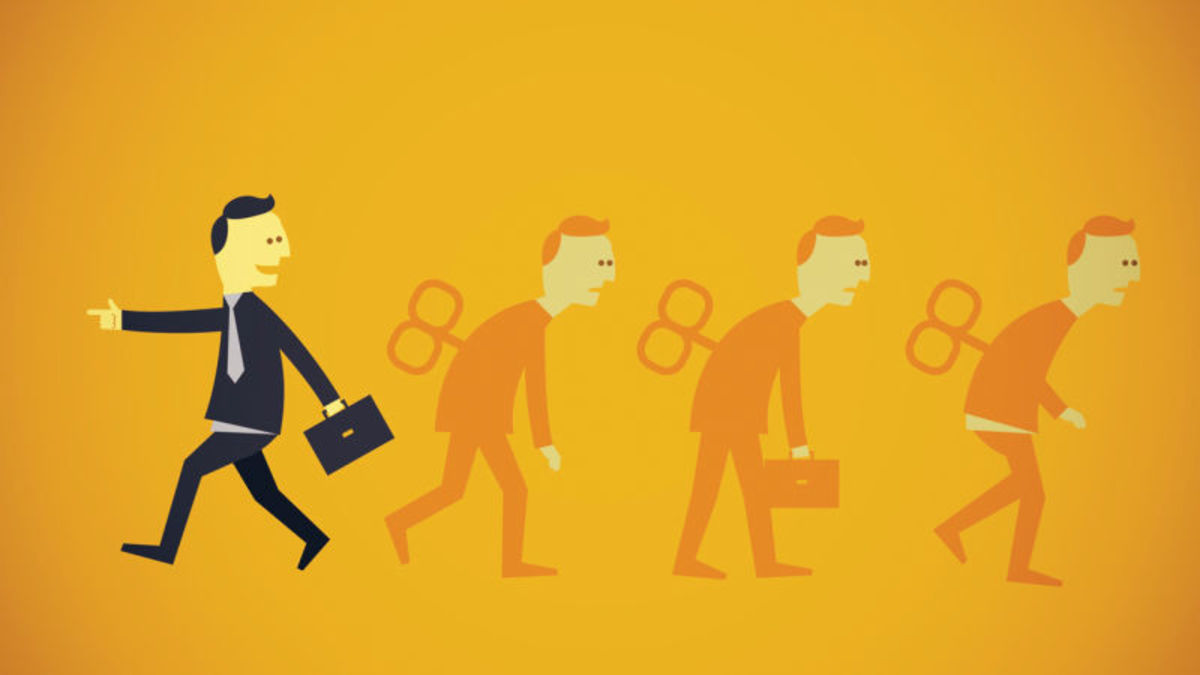3 Key Obstacles to Success and How to Overcome Them
What Holds Us Back from Success
The most prominent anchor holding back most people's success ship has its name. We are our own worst enemies. As Pogo said, "I have seen the enemy, and he is us!".
Unhappily, the things we fear are usually much more extraordinary than what is real. Fear is infinite, and we almost always build it on worst-case scenarios that can never happen. So, every idea we have has to climb a Himalaya size mountain range of personal terror before seeing even a glimmer of sunrise.
Given that we want to be successful, we need to identify each mountain of fear and deal with that before we further destroy our success.

1. The Fear and Stigma of Failure
Everyone fears failure. The fear of failure is often more tangible than the incentives for success, so ideas die at the inception stage.
Each of us knows most of our weaknesses. We worry about our laziness, lack of imagination, inexperience, and track record of giving up. Unless we can master these other mountains, we will have our success torn to tatters before it gathers any momentum.
Between our mother's view that we are genius just waiting for an opportunity and our sibling's belief that we are a complete doofus who would trip over the only rock in the desert of chance, there is a path to find, a way through the fear mountains.
Bill Gates and his partner, Paul Allen, did not start with Microsoft. They started their first company, Traf-o-Data, which aimed to process and analyze the data from traffic tapes. Big data is now in, but, at that time, nobody was interested in their idea. It ended in disaster. If both Bill Gates and Paul Allen had stopped, Microsoft would not be there, or other entrepreneurs would have brought on a different version. They were lucky they lived in the United States, the country with the lowest individual fear of failure.
Fear of blowing it is so intense in Japan that not many Japanese are entrepreneurs. Failure can be debilitating, and the Japanese are just learning, what many Americans do, hide it behind narrative fallacies or hire spin doctors to soften, even nullify the impact of failure. If you fail, the entire family bears the shame. This view is changing slowly.
In India, where the pressure to win a seat in one of the top institutes of technology, many reported suicides among young aspirants. Missing the chance is shameful, given the family's total commitment to youth success. Even in North America, the fear of failure is prevalent in many aspects of our society and intense in many individual lives, which are the most supportive environments.

The Internal Fear of Failure
Your failure fear has acutely affected your chances of success. While you hail many who have built on the learning from their failures to reach tremendous achievements, the collateral damage from loss lies around you, and you don't want to undermine your self-confidence.
There are suggestions around organizing an Embrace Failure Day or having institutions celebrate Failure Week, helping us face our fear of failure so we can climb the mountains and see a sunrise. We know that a failure-accepting environment like Silicon Valley becomes the natural seedbed of invention, so how do we help achieve some of this at home?
As an illustration, I will share my own experience. I am 65 years old. It was only recently that I sorted out what I had been doing or maybe what had been happening to me. I first thought that I was not a success because I didn't know what I wanted to do in life. As a result, I concentrated my effort on trying things out endlessly to discover what I wanted to do. But somehow, I had not succeeded after doing this for over 30 years. I went from one thing to the next with some success but not satisfaction and never pushed any of these activities hard enough to fail or succeed.
One day, I had a do-it-yourself epiphany. It became clear that I had allowed everything to happen to me, that I had not taken hold of myself nor taken 100% responsibility for my life. Why? My fear of failure paralyzed me. Incredulous was my initial reaction, but true. I just had to face it.
At first, I worked on my fears. I tried to understand what they are and how they influence my actions and decisions. I pounded on this for some time until my fears' hold on me was no longer fierce, and I could often thwart it. A therapist also taught me how to make friends with my fears, which helped tremendously. I can look at what went wrong and do something about it or assure my inner self that it is no longer unconquerable. I could do something about it, so the fear slowly disappeared.
Now, I live my life with fuller awareness, not out of fear. I choose. I no longer react and don't quit because what I am doing is not a reaction. I take deliberate steps, own the outcomes, test them out, and steer the next step based on what I have learned.
In other words, I now have reasonable control of my actions. I decided and gave a chosen activity my total commitment. Not anymore, Oh, I'll do it when I'm free, test it out, or see if I like it. No. I decided and focused on the chosen task till completion.
My productivity has gone up, and my complaints are gone. My hating of life for giving up a career is all gone. This new view is what I like to embrace now, and I give it my all. I have come to enjoy my day more. I no longer count my input. I do what I can do and give it my all. Remember Aesop's fox. He wanted a bunch of grapes with all his heart, but he could not reach them. He jumped and jumped so that he could avoid failure. He exclaimed, "ahhhh, they are probably sour!!!!" He won by failing.

The Stigma of Failure and the Blame Culture
There is another side to failure that impacts individuals and society. As a society, we may have learned from our family, school, church, and others that loss is terrible. We fail if we don't graduate or get promoted to another level, or make the varsity team. But if we don't try, we can quickly rationalize the failure. So our fear of failure makes us fall!
The stigma is there, and this includes your family. Your parents feel embarrassed that they have failed to raise you, and the community thinks they are horrible parents. Thus, early on, this fear of failure has been entrenched and stigmatized and taught us failure mechanisms that save everyone from embarrassment.
We observe this in the behaviours of our politicians who blame the previous administration for whatever goes wrong. They blame the media for not reporting the truth. Our church leaders blame the entertainment industry or other social changes for the dwindling numbers of churchgoers. Schools blame the internet for the inability of students to get good scores on tests. Fans blame coaches when their team loses. We can cite endless examples of blame in our society.
So, the internal fear we must overcome, and the external blame culture are stoking this up. How do we make our environment a personal Silicon Valley where failure is just the next step on the ladder to success?
2. Limiting Beliefs and A Fixed Mindset
My father-in-law used to say, "It ain't what you don't know that hurts you; it's what you do know that just ain't so." We have beliefs we hold on to even when people tell us they are not valid. We tell them it worked for us for years even though we have not tested its veracity. We know it didn't work because we never really tried it.
Examples of limiting beliefs also abound in history. In the middle ages, doctors used bloodletting as the prevailing belief that it cured people. Because of its wide acceptance as effective, there was no need to look for alternative cures. That the earth is flat has been widely accepted for a long time. Today, some organizations and many social institutions accept these beliefs as truths. Nobody questions these. In ancient times, questioning accepted beliefs could get you burned!
In his book on Elon Musk, Ashlee Vance gave examples of how experts had judged Musk's claims of what SpaceX could deliver as impossible, but Musk did it. If he had believed the experts, he would not have succeeded in pushing our knowledge of space technology. Musk did the same with electric cars and challenged the auto industry's belief structure to mask their inability to invent.
Those at the top of the current system often believe that everything works well, and there may be the usual minor changes done each year, but the frame is solid. That is a Fixed Mindset.
They have put together the current system and succeeded in it, and they are not prepared to accept that they were wrong or there are things they did not see correctly. Judges and prosecutors, who have proclaimed a person's guilt, will hardly welcome insinuations that they made a mistake in their judgment. Many languish in prison because of this kind of mentality. Bad technology fills the roads because of fear of failure for new ideas. In the workplace, few managers will accept that they made a mistake in their staff's choice even when they see their performance. Board members will hardly bear that they made a mistake in choosing a CEO. Doofuses survive and get promotions.
Because of a fixed mindset, things stay as they are for many years even if almost everyone sees they don't work that well, nor are they effective. One example is the education system in many countries. Most know the system is no longer working if its main job is to support learning, but few are prepared to change it. Some educators think it is the best they can do and only needs to be more effective, but the system is alright.
Many planners think they can only do so much, and they keep going back to what they know already and what they have done before. Some even think they have an instinct of what to do, and there is no need to test their ideas or implement them—limiting beliefs.
This attitude led the space technology experts to tell Musk about his ideas, but Musk refused to see these limits and hammered his people to make them happen. He won, and now other countries are lining up to use the rockets he has made.

3. Negative Thoughts
Negative thoughts we can relate to easily. Our mind has the power to haunt us with our failures, remind us of these every moment and, as such, cause continuing stress in addition to the new mistakes we make day-to-day. The focus of some of these negative thoughts even results in sickness and death in many people. Marley's chain gets longer and heavier.
But even in our day-to-day existence, our mind has ways of bringing about negative limiting thoughts. If we drop our breakfast plate, we tell ourselves that this will not be a good day. We start thinking of things that could go wrong, not the things that bring us joy or satisfaction. Even worse, we start blaming ourselves for these things, so by the time we get to work or go to school, our minds are already expecting the negative, so everything that happens will be viewed negatively.
Our minds are experts in this. It rolls out scenario after scenario of negative things that could happen that we're already in such a state that nothing positive can get our attention by the time we stop. We selectively pick out experiences that support the negative image and cement failure. The Black Cat Syndrome can destroy your life!

How do We Overcome these Obstacles?
We live in a very complex world, so whatever suggestions we take must consider all these ideas working together to put anchors on our success. So, what steps can we take to overcome these significant obstacles? Here are some suggestions:
1. Make failure a friend, a necessary step in growing, creating, or expanding. It is an integral part of winning because it shows us that there are other ways, maybe better ways, of pursuing something.
2. Read biographies of famous, successful people and count the number of failures they had on the road to success. You will be amazed!
3. Students can learn levels of coursework independently with the help of the teachers or other classmates but do not expect everyone to go through these simultaneously and in the same way. For example, they can learn things differently, testing different ways of understanding the same theory. The curriculum must make students test, try out, and practice until they become proficient.
4. Encourage questions, debates and discussions, and criticism within the family, school, friends, institutions, and work.
5. For many of us, work on our fears, especially the fear of failure. There are many ways of doing this, and help is there for those who want to do it seriously. We also encourage others around us to do the same when we do this. More importantly, the loop of negativism gets opened up when they reach us and transform itself into positive learning experiences.
6. Challenge fixed mindsets or any mindset. Most of us have fixed beliefs. In some companies, we can laugh at some of our long-held beliefs. Keep these kinds of companies. Bringing it to our awareness is part of getting a handle on changing it.
7. Work on defeatist thoughts and negative talk. It is not as simple as telling ourselves, don't think or don't do that. We can identify the verbal statements that negative thoughts take and place a positive alternative beside them. In the chart below are some examples to which you can add more. Let it work as a checklist as you practice changing towards a more positive way of communicating.
Examples of how we can change negative communication to its positive alternative
Negative Talk
| Positive Alternative
|
|---|---|
I'm really not good at this
| I will give it a try
|
I don't like working with other people
| I will start working with one or two I am comfortable with
|
What you suggest will not work
| I will see how I can make it work
|
We don't have the resources to do that
| Let's see how we can move some resources so we can try doing this
|
I don't think I can do that work
| I'll give it a try
|
I have no time to do that work
| I'll look at my schedule and see where I can fit this in
|
That work is too complicated for me
| I will give it a try and see where I can get help to do this
|
I always get the worst weeks for vacation
| Let's take a look at the calendar and see how we can work out our vacation schedule
|
The Most Difficult Obstacle to Overcome
Which of these is for you the most difficult to overcome?
Onward to Success
So what do we conclude? We are our own worst enemies. We can do something about this. Others have shown us. It's our determination that will make a difference.
This content is accurate and true to the best of the author’s knowledge and is not meant to substitute for formal and individualized advice from a qualified professional.
© 2018 Mary Norton








